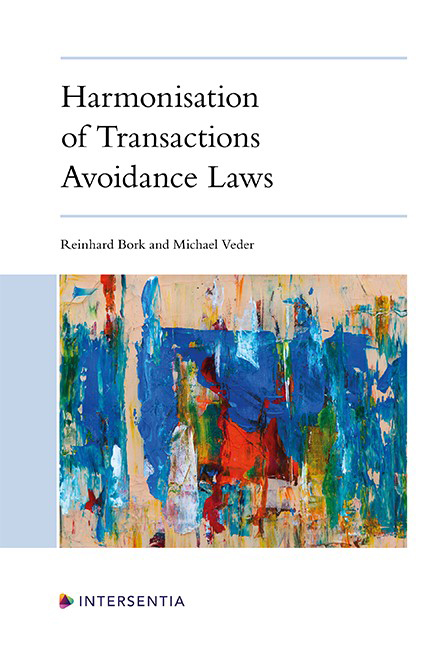Ireland
Published online by Cambridge University Press: 26 May 2022
Summary
PART 1. DETAILS OF YOUR NATIONAL TRANSACTIONS AVOIDANCE LAW
I. SYSTEM
Question 1. Is your transactions avoidance law (for terminology cf. Introduction at C.) part of insolvency law or is it in parts or as a whole incorporated in other fields of law (e.g. general civil law, commercial law, company law)?
Irish transactional avoidance law is largely contained within the Companies Act 2014 (as amended of particular relevance to the subject matter at hand by inter alia the Companies (Miscellaneous Provisions) (Covid-19) Act 2020 and the Companies (Rescue Process for Small and Micro Companies) Act 2021) and, as per the jurisprudential nature of the common law, such provisions have been interpreted and therefore refined by judges in case law. The Companies Act 2014 (as amended) consolidated and reformed previous legislation and therefore where there are no significant differences in terminology or wording from one enactment to the other, case law decided in relation to previous provisions will apply in subsequent cases. Also, many statutory provisions in common law jurisdictions are refinements of the old principles of common law themselves. Therefore decisions of courts in other jurisdictions with similar provisions will be of persuasive authority. This applies particularly to case law emanating from England and Wales and to a lesser extent but similarly to case law emanating from Australia and New Zealand.
As well as the provisions in the Companies Act 2014, there are also a number of common law principles, for example the pari passu principle, and in this context a general anti-deprivation rule. This latter rule has received a great deal of attention in recent years.
However, to be clear, even though the statutory provisions are contained in the Companies Act 2014, this legislation is viewed as a consolidated code. It does not mean that transactional avoidance is not considered to be part of an insolvency law code. The insolvency law code is simply included in this consolidated statute.
Question 2. Are the rules on transactions avoidance law in your jurisdiction the same for entrepreneurs/legal entities and consumers/natural persons? If not, please explain the differences and take it into account when completing this questionnaire.
- Type
- Chapter
- Information
- Harmonisation of Transactions Avoidance Laws , pp. 913 - 952Publisher: IntersentiaPrint publication year: 2022



